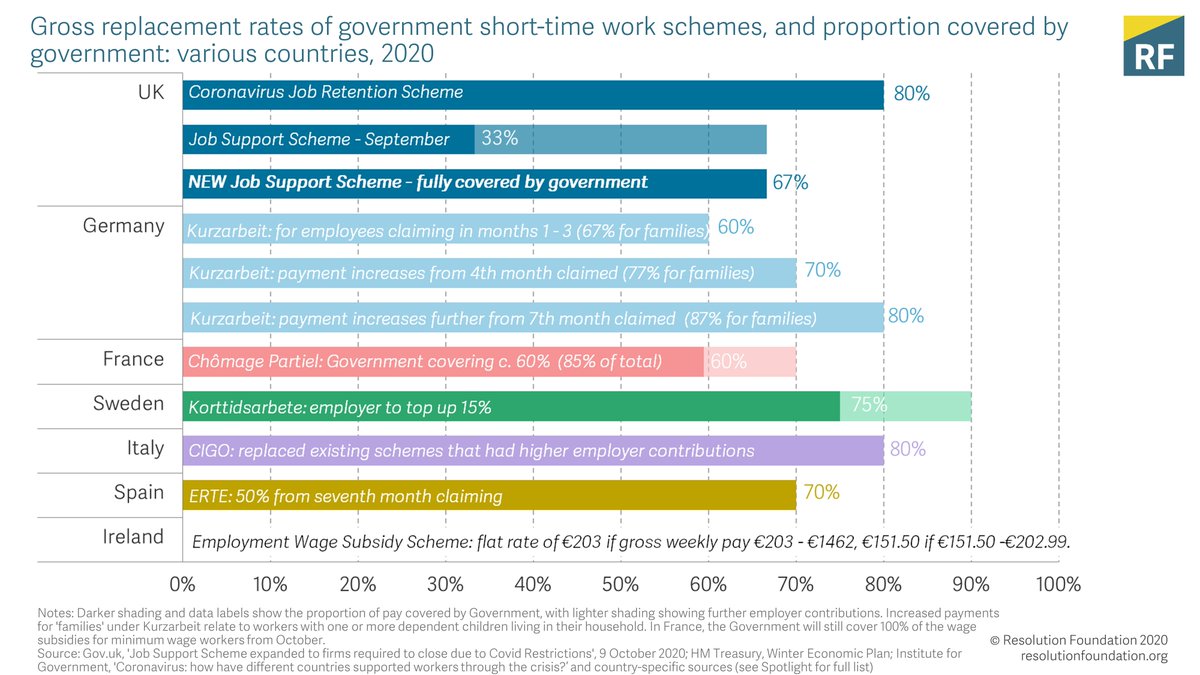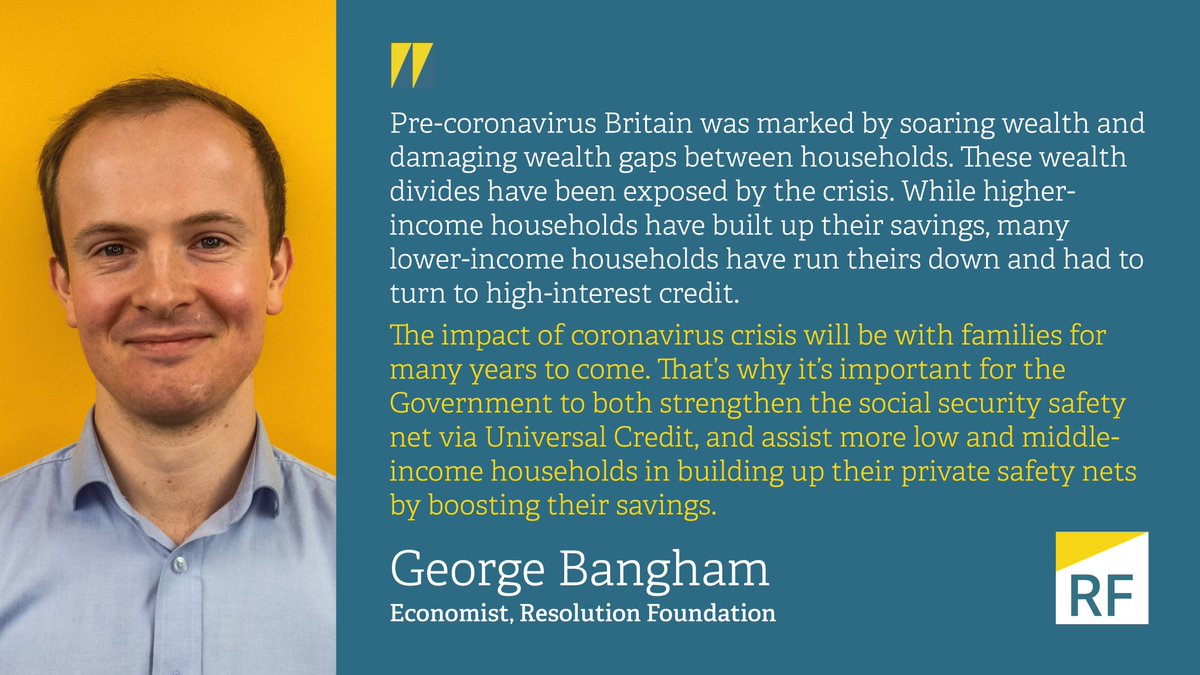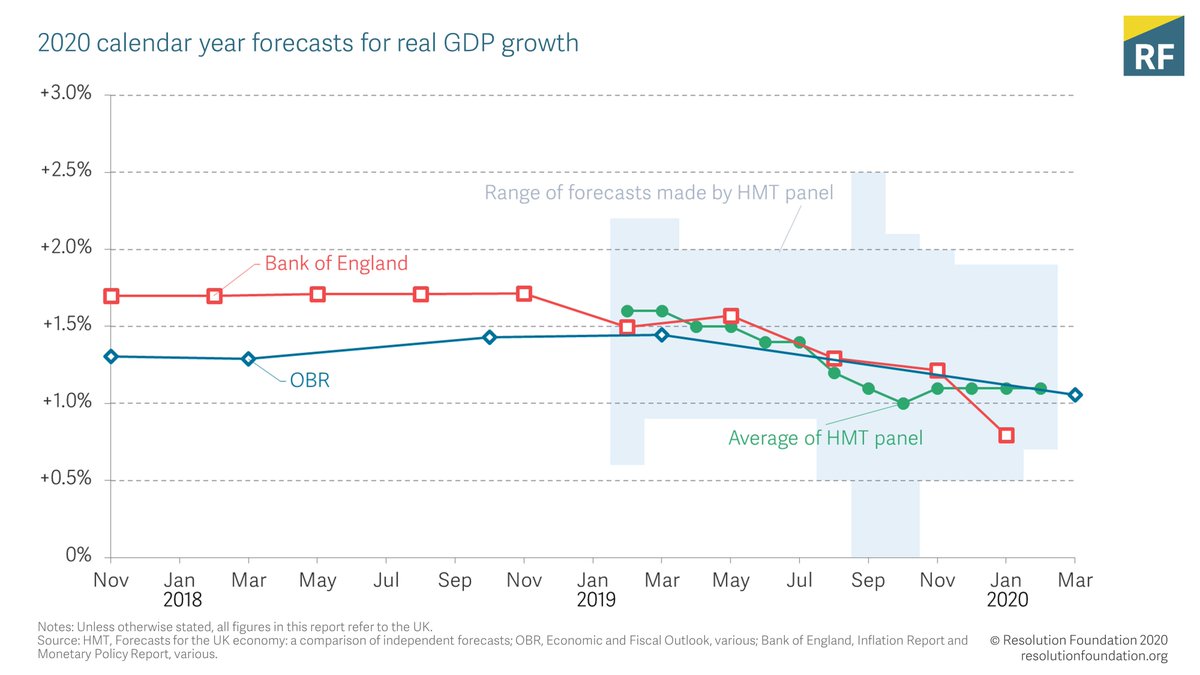
NEW RF analysis of the Chancellor's 'extended Job Support Scheme' announced today. Short thread with full report published shortly... 

1. If it looks like furlough, it works like furlough, and it (almost) pays like furlough...it probably is furlough (the March version but with a lower top-up of 67%) 
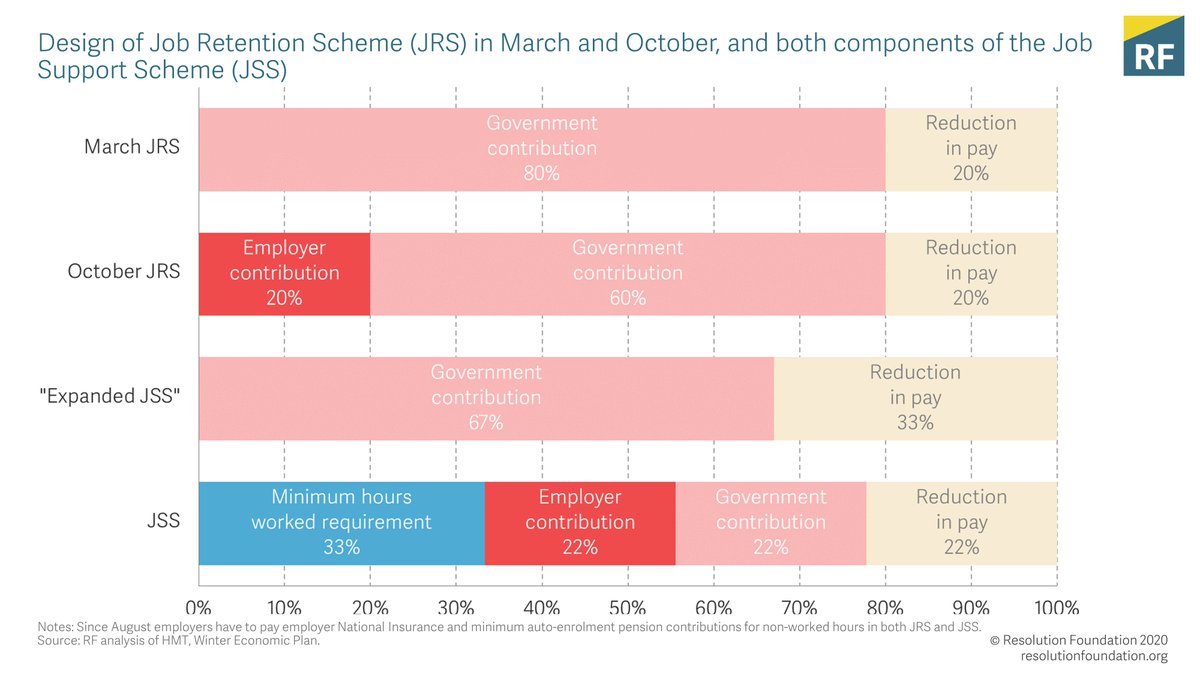
2. While less generous than the Job Retention Scheme for employees, the Chancellor's new scheme is still in line with other European schemes in terms of support for workers. 
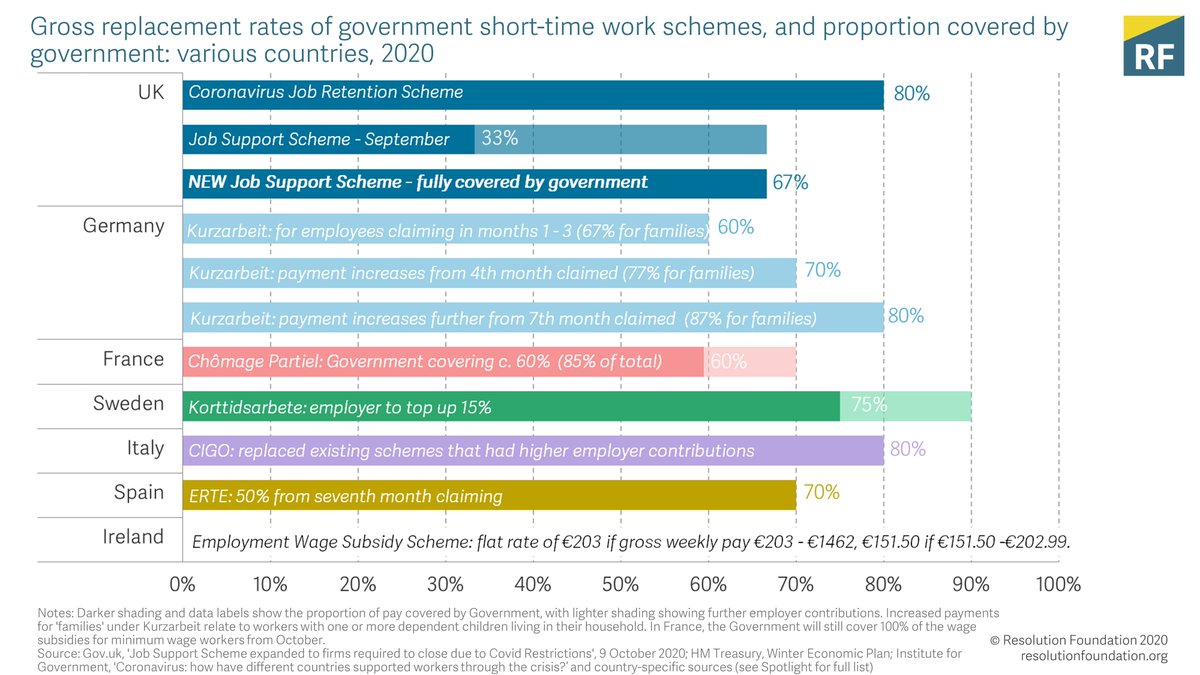
3. Those moving onto the 'extended Job Support Scheme' can expect to retain a high share of their previous earnings. But it has come far too late for many for many workers, who have already lost their jobs and face a far bigger income shock moving onto Universal Credit. 

4. If hospitality businesses in local authorities that currently have some form of additional restriction are asked to close then up to 440,000 hospitality employees could be using the new furlough scheme in early November. 

5. And the cost of the new scheme if take-up were to hit 440,000 employees? Around £2.4bn over six months... 

• • •
Missing some Tweet in this thread? You can try to
force a refresh


